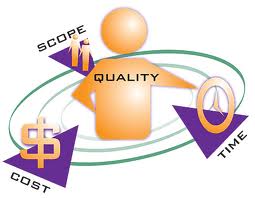
In an interesting article that I have read called “ why does project management fail?”, the author tries to bring his own experience and theories into play. He starts talking about how many companies question themselves and that they think that project management is just just a mixture of tools and techniques that should guarantee their success.
As we learned in class, project management consists of two parts, the first one is dependent on science which are tools and techniques. The second is that its also an art, it is important to put in our mind that even with the best planing techniques possible, even if we put a contingency for every event, things still go wrong. It is in the art of project management that we learn how to adapt and move on to make something work.
The author goes on explaining that there are some factors which lead to the failure of project management in organisations such as the” Lack of knowledge, lack of organisational policy, lack of enforcement of policy and procedures, lack of consideration for the magnitude and complexities of project management”. It is true that project management tools are only as good as the people who use them and it is a philosophy that would work only if everyone in the organisation or at least the specific project is onboard.
Some times it is better to outsource, if a certain company doesn’t have enough knowledge/resources and doesn’t feel it has the discipline to adopt project management methodology. There are some companies whom specialize in consultancy and project management, in fact outsourcing could save those companies a lot of money and energy as well as add proficiency.
It is also important to look at the role of the project manager himself, we spoke in class about Active and reactive managers. I think that the article focuses on the benefits of active managers and dismisses reactive managers. It is true that being active means that you should be ready for different scenarios and prepare all contingencies in advance, but that is the science part. Reactive management is more like the art part where you would have to work with whats introit of you. A balance of the two is always needed, you don’t want to start a project without any plan, in the same same time you don’t want someone whom wouldn’t know how to respond when something goes wrong and he had no way of putting a contingency plan for it.
Some think that project failure is only due to not being able to deliver to costs or expected quality or even missing the deadline. Those are all valid reasons, but leadership and organisation philosophy is what could be put as the thin line between project success and project failure.
Reference:
http://www.projectsmart.co.uk/why-does-project-management-fail.html

